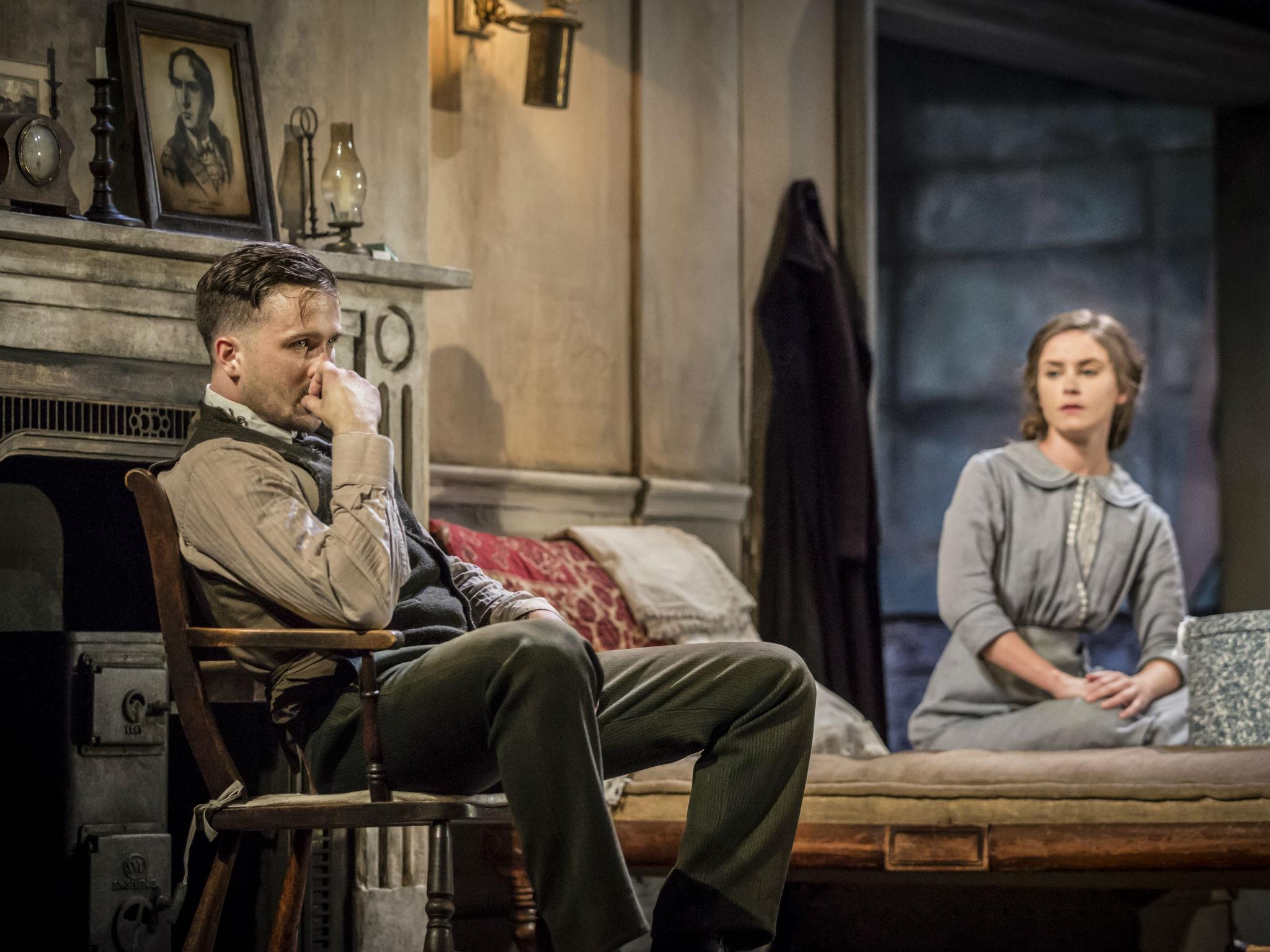The Plough and the Stars, National Theatre, Lyttelton, review: 'A centenary is not enough to justify this revival'
Sean O’Casey’s 1926 play tells the story of the Easter Rising, when Irish nationalist rebels were quashed by British army forces in 1916

Your support helps us to tell the story
From reproductive rights to climate change to Big Tech, The Independent is on the ground when the story is developing. Whether it's investigating the financials of Elon Musk's pro-Trump PAC or producing our latest documentary, 'The A Word', which shines a light on the American women fighting for reproductive rights, we know how important it is to parse out the facts from the messaging.
At such a critical moment in US history, we need reporters on the ground. Your donation allows us to keep sending journalists to speak to both sides of the story.
The Independent is trusted by Americans across the entire political spectrum. And unlike many other quality news outlets, we choose not to lock Americans out of our reporting and analysis with paywalls. We believe quality journalism should be available to everyone, paid for by those who can afford it.
Your support makes all the difference.It may be telling the story of the Easter Rising – when Irish nationalist rebels were quashed by British army forces in 1916 – but Sean O’Casey’s 1926 play keeps a remarkably chipper tone, before descending into predictable tragedy. Sadly, when the blows come, they fail to move much; when all that’s gone before is strained humour and crude stereotypes, it’s hard to care much for this Dublin family and neighbours.
O’Casey’s play was initially intended as an antidote to myths of heroism that sprung up around the Easter Rising, and fair enough: there’s little nobility or glamour here. Rather than be presented with barnstorming speeches or fervent political ideals, we see the quotidian portion of the lives of everyday Dubliners, struggling in poverty in the tenements.
These are meticulously recreated, but also half-blasted out, roofs crumbling, in Vicki Mortimer’s rather sumptuous design. It’s a chilly warning throughout of the destruction to come.
Much of The Plough and the Stars is made up of bickering and brawling, between needy spouses and needling relatives, morbid prudes and drunk prostitutes. When politics do intrude, both hard-line nationalists and hard-left communists are sent up for their showy faith in ideology. And absolutely no-one’s above a bit of looting.
The grand rhetoric of violent revolution is, therefore, undercut by the squabbling pettiness of ordinary folk. It’s a reasonable point to make, but with the broad comedy bumping along rather than ever taking flight, it feels laboured in Howard Davies' stodgy production (Jeremy Herrin took over direction after Davies had to step down due to ill-health).
And, despite some good performances, some of the characters never quite convince. They too often feel like tired Oirish clichés, a bit too broad, a bit too loud. They don’t breathe. And when these people don’t connect with each other, we can’t connect with them either. This is most problematic in the lack of chemistry in the central relationship between a vain, ambitious member of the Irish Citizen Army, Jack Clitheroe (Fionn Walton, whose diction is challenging at times) and his devoted wife Nora (a spirited, gutsy, vocal chord-shredding performance from Judith Roddy). Given she’ll later offer a central argument against fighting, pleading with him not to descend into violence because she loves him so much, this lack of believable passion somewhat derails one of the play’s main motors.
It’s a shame, because there’s some nice detailed work in the performances. Josie Walker’s sour, sulky-limbed tics and gestures are a whole language of their own, while the jumpy physical sparring between Tom Vaughan-Lawlor and Stephen Kennedy is like watching cocks hop around the stage. Justine Mitchell stands out as Bessie Burgess, a cantankerous, batty unionist neighbour who is slowly revealed to have hidden, deep pools of compassion.
A timely period drama with elaborate, revolving sets and a melodramatic death-and-doom ending that goes on for weeks, The Plough and the Stars feels like a solid, dutiful bit of really theatrey theatre. But the coincidence of a centenary is not enough, in itself, to justify this revival.
Join our commenting forum
Join thought-provoking conversations, follow other Independent readers and see their replies
Comments